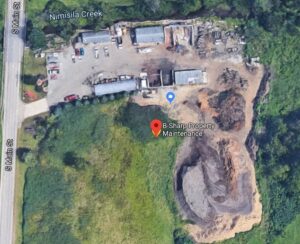
What do you do with your compost?
Ohio laws define composting to dispose of solid waste using controlled biological decomposition. Compost facilities have classifications according to what they can accept. They are also required to register, have a license or permit from the Ohio EPA. Additional requirements are operational requirements, recordkeeping and testing requirements for compost product prior to distribution.
The different classifications are as follows:
- Facility Class I: Mixed Solid Waste
- Class II: Yard Waste, Agricultural Plant Materials, Animal Waste, Dead Animals, Raw Rendering Material and Food Scraps
- Facility Class III: Yard Waste, Agricultural Plant Materials, Animal Waste, Dead Animals, and Raw Rendering Material
- Class IV: Yard Waste and Agricultural Plant Materials
There are many regulations a facility must meet in order to become a composting facility.
B-Sharp Property Maintenance is a Class IV facility and accepts yard waste and agricultural plant materials. We are not able to accept material such as solid waste, feedstock, bulking agents, demolition debris (unless it meets the clean untreated wood definition), hazardous waste, infectious waste, asbestos, batteries, containerized bulk liquids. To get this certification, B-Sharp had to make sure to comply with all the Ohio EPA regulations and requirements.
One of the first requirements is to make sure you can control the surface water drainage. Controlling the drainage will prevent run-off from encountering the composting area. This will prevent erosion or ponding and will minimize the impact the compost will have on the groundwater. B-Sharp must make sure to keep the carbon to nitrogen ratio and moisture content are at certain levels and make sure to turn the compost often so that we can control the decomposition conditions.
B-Sharp accepts non-treated lumber, such as tree stumps, limbs, and trunks. To comply with the EPA we must grind these items prior to putting them into our compost area. When doing so we make sure to take out a foreign material that may be in the waste. Removing foreign material prevents contamination.
Another requirement is that we keep records., The Ohio EPA requires that we keep and maintain records for a minimum of three years. These records must be ready and available for inspection at any time. There also must be a log of operation kept. This log completed at least once per week. Ohio EPA also requires annual reporting submitted February first of each year.
You shouldn’t just put all your waste out at the curb for the trash company to pick up.
When you do this it goes to the local landfill and that is why we have so much pollution in our environment. When disposing of waste make sure to find your local composting facility, prior to visiting you always want to make sure of the class so you are aware of what you can take to them.